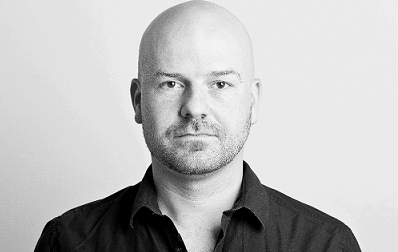Meet Manuel Moser, from Comedia Theater !

Today, we are very happy to tell you a bit more about our German partner: Manuel Moser who works at Comedia Theater in Köln.
Who are you?
I am Manuel Moser, a 42 year old director living in Cologne/Germany
What do you do professionally?
I am an actor, director, author and one of the artistic directors of COMEDIA theatre, one of the biggest Theatres for Young Audience in Germany. Besides that I am part of the artistic team of ‘europefiction’, a youth project connected to ten theatres in six European countries, I have my own theatre collective c.t.201 in Cologne where we produce plays for adults and I founded ‘Family Rangarang’ which is a group of young refugees and migrants that create one play per year.
Why do you work on projects with migrants? What are your personal motivations?
My personal motivation is to make theatre for everyone in my city. This includes migrants and refugees as well as all the others. In my work concerning themes such as migration I try to connect to migrant theatremakers so that their perspective can get to the front. I feel more as a dooropener and a creator of possibilities, because in our theatre-system it is still difficult to be visible if you are not part of the majority.
I want to learn, i want to include and I want to make all voices heard on the stage of our theatre.
What is your general approach on the relation with migrants at Comedia?
I do neither feel that I am someone who ‘helps’ them nor do I feel that I teach or educate them. We make theatre together, which means that we research, improvize, collect texts and decide form together. Art is an international language, why should I think I know more about it than someone from Syria or Afghanistan? This collective work is sometimes also difficult, because the perspectives of young migrants are of course different than mine as a male queer theatremaker. In the last years we had the great chance to make our team more diverse and to include female, trans*, migrant and younger voices in the processes of our theatre. And still we are by far not as diverse as the society is. We work on that goal.
Participation for us means not only having the chance to make a project but instead be part of the decision-processes connected to our art. This is sometimes very hard, especially for those who made the decisions in the last years, mainly white Males.
It makes it easier that this process is going on not only in the theatre but in the whole society at the moment. We have to learn a lot.
How do you think can the Getting Unstuck project help artistic teams who work with migrants and migrants themselves?
I think we are all stuck in our habits, our systems, our structures. Sometimes I even have the impression we as autochthonous Germans are more stuck than the young migrants, that changed their whole lifes by going on a journey to Europe to start new.
Realizing that we can only overcome our problems by learning from each other, by accepting each others‘ needs, by making up our minds and think in a new way can help us to recreate our societies.
How can we think that societies change, but we still do the same as we did in the last 20 years and only expect the others to adjust to our ‘traditions’ or customs. If we do not change, theatre will be irrelevant in a few years – Irrelevant for young people, irrelevant for people of colour.
I hope that the project Getting unstuck will give us a chance to try out new ways of approach. At the end there could be some ‘best practice’ experiences, feedback from a lot of participants all over Europe whether they are theatreworkers or migrant artists.
My wish would be that we see artistic results that do not strengthen the distribution of power in our European societies as a status quo, but that envision a Europe where people of all backgrounds can coexist equally in peace.
My goal is not to reproduce pictures of clever European men teaching others how to do things (for example art) but to really create a space for codesign, for other perspectives and other views.
If that would be possible, I am sure we all would be benefitters.
